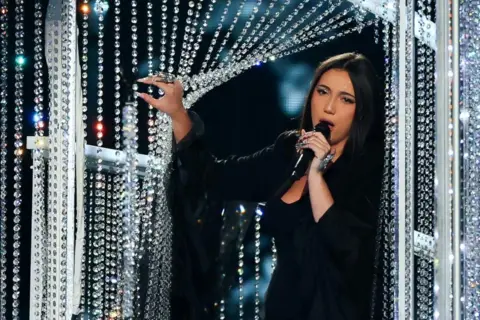What is Eurovision? A Complete Guide to the Iconic Song Contest
The Eurovision Song Contest is more than just a televised music competition. Each year, it brings together artists and audiences from dozens of countries in a vibrant showcase of musical talent and cultural diversity. If you’ve ever wondered "what is Eurovision," or why this event sparks such excitement worldwide, this guide will provide all the answers.
What is Eurovision?
Eurovision is an annual song contest organized by the European Broadcasting Union (EBU). Launched in 1956, it is one of the world’s longest-running and most-watched international television events. Participating countries submit original songs to be performed live, competing for points from both professional juries and the public. The winners bring the contest to their nation the following year, which fosters friendly rivalry and international celebration.

History and Evolution of Eurovision
The first Eurovision Song Contest took place in Lugano, Switzerland, as a way to unite Europe through music after World War II. Over the years, it has grown to include over 30 countries, extending beyond geographical Europe. Notably, countries like Australia and Israel participate due to their membership in the EBU.
The contest has launched many music careers. World-famous artists such as ABBA and Céline Dion found early fame through Eurovision. Its legacy continues to grow as new talents emerge each year.
How Does Eurovision Work?
Eurovision’s format is unique. Each participating country submits a song, usually chosen via a national selection event. Entries must be original, under three minutes long, and performed live on stage—no lip-syncing is allowed.
The show consists of two semi-finals and a grand final. Points are awarded by both national juries and public televoting. The country with the highest total points wins and hosts the next contest. For a comprehensive look at the voting system and country participation, visit BBC News: What time does the Eurovision 2025 final start and who is in it?.
Which Countries Participate?
The majority of participating countries are from Europe, though a few non-European nations join the fun. Some countries, like the "Big Five" (UK, France, Germany, Spain, and Italy), receive automatic entry into the final due to their financial contributions to the EBU. Recent editions have seen up to 37 countries competing, creating a truly global celebration. For ongoing Eurovision updates, explore live coverage on NY Times or the Associated Press.
Why is Eurovision So Popular?
Eurovision is a spectacular blend of music, fashion, and showmanship. Fans love its inclusivity and campy performances, but also its unpredictability and occasional controversies. Each year’s event is themed, and hosting duties rotate among winner countries, bringing unique flavors to each contest.
With widespread TV broadcasts, passionate fanbases, and a reputation for launching careers, Eurovision continues to gain viewers. In 2025, for instance, the contest will return to Switzerland, where it started, after Nemo’s win in 2024 (see details).
How to Watch Eurovision
Eurovision is available to stream or watch on major TV networks across Europe and beyond. The grand final attracts millions of viewers annually. If you’re elsewhere in the world, check your local broadcasters or official online streams for access.
Conclusion
In summary, Eurovision is a unique global event that celebrates diversity and creativity through music. If you want to dive deeper, check out comprehensive guides on the BBC News or follow live updates on NY Times. Whether you’re a music enthusiast or a casual viewer, watching Eurovision is an unforgettable experience that unites people around the joy of song.